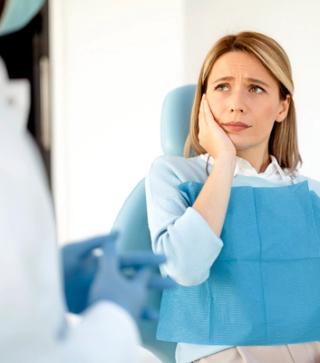Bruxism (teeth grinding)
Bruxism often occurs during a deep sleep or under 🃏stress.

Bruxism, or teeth grinding as it is more commonly referred to, is an uncontrollable clenching or grinding of the teeth against one another. This is more commonly attributed to a sleep disorder (sleep brux𒐪ism), but in certain circumstances occurs when you 🐓are awake (awake bruxism). If left untreated, bruxism can lead to Myofascial muscle pains, TMJ Disorder, and headaches.
People who suffer from sleep bruxism can also suffer from other sleep-related dಌisorders, such as sleep apnoea, which can cause additional issues as it is harder to control.
Symptoms of Teeth Grinding
Signs of bruxism include:
- Sensitive teeth and increased tooth pain
- Loose teeth
- Cracked/chipped tooth enamel
- Flattened teeth
- Grinding sounds while you sleep
- Headaches (usually starting from the temple region)
- Chewing on the inside of your cheek
- Poor sleep
Causes of Bruxism
There is no one specific cause of bruxism but is the result of a combination of physical, psychological, anꩵd genetic elements.
- Stress, such as anger and/or anxiety
- Family members who also suffer from bruxism
- Underbite, overbite, and other abnormal bites
- Antidepressants, antipsychotics, and amphetamines can offer side effects leading to bruxism
- Certain neurological conditions (Parkinson's disease and Huntington's disease)
If you notice any of the symptoms above, speak to your dental practitioner, at a suitable time 🦂for you and arrange for an inspection. If you notice your child grinding theirꦬ teeth or suffering from any symptoms, make sure to mention this at their next appointment.

